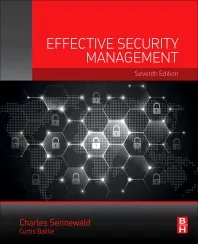Leadership & Management
Hollywood offers leadership lessons

LPETTET via Getty Images

My father designed some of the most iconic movie posters of the second half of the 20th century, including “Alien,” “Rosemary’s Baby,” “Superman” and “Downhill Racer.” My mother wrote catchphrases for those posters, with the “Alien” catchphrase, “In space, no one can hear you scream,” being probably the most memorable. Since there is a bit of Hollywood in my blood, I’d like to offer some of the films that contain powerful leadership lessons for security professionals from that same time period for consideration: roughly from the early 1960s to the late 1990s.
For this list, forget about the obvious sources. No war movies, biopics or sports flicks. Some of the best dramatizations of leadership come from those genres, but let’s dig into the unconventional, unexpected and untrodden, presented here in chronological order. Spoilers ahead!
“The Manchurian Candidate” (1962): Communist military brass brainwash American troops and return them home to be activated later as unwitting sleeper agents who will help install a pro-Chinese/Soviet president. A parable about the effects of McCarthyism, the film ends with the hero snapping out of his daze and destroying the Americans conspiring with the Chinese.
Lessons for security: While few security professionals will ever actually be brainwashed, they might be actively or passively helping their company commit fraud, conceal or destroy evidence, abuse staff, bribe officials or otherwise run afoul of their legal or ethical responsibilities. Sometimes you have to snap out of your reverie and do the right thing.
“Deliverance” (1972): Maybe the only thing worse than being up the river without a paddle is being up Class IV+ rapids while being stalked by predatory locals. The four adventure-seeking Atlantans fight off their attackers and escape legal consequences, but the three survivors are forever haunted by their experience and the possibility of the truth coming out.
Lessons for security: The film is a lesson in crisis management when the options range from bad to intolerable. Pre-planning, knowing your course of action, creating trusted relationships beforehand and preparing options in case issues arise are all critical, but sometimes everything goes wrong and you have to improvise. Like Lewis, the Burt Reynolds character who leads all but one of the friends out of mortal danger, you can do your best, and sometimes even the best result will be awful.
“Dead Poets Society” (1989): Robin Williams’ character, John Donne, has the students at his prep school address him as O Captain, My Captain, in homage to Walt Whitman’s poem about one of the greatest American leaders, Abraham Lincoln. Donne defies the barnacle-encrusted history and hidebound traditions of the school to teach his students about fulfillment and self-actualization.
Lessons for security: Sometimes tradition and culture stifle growth and innovation. Security can help an organization pivot to new markets and technologies, such as leading digital transformation. Moreover, sometimes a catalyst is necessary to spark change — and a catalyst doesn’t survive beyond that spark. Donne sacrifices himself for a larger cause, a role that security practitioners are used to.
“Groundhog Day” (1993): Bill Murray’s weatherman relives thousands of iterations of February 2 in Punxsutawney, Pennsylvania. From a burnt-out, boorish cynic, he rebuilds himself into the best possible version of himself to ultimately escape the time loop.
Lessons for security: No matter how jaded, mechanical or uninspired you’ve become, you hold the power within yourself to change at any moment. That means even the most hardline, old-school chief security officers can learn their organization’s business, mentor next-generation professionals, master cybersecurity, take public-speaking courses and so on.
“Pulp Fiction” (1994): Gangsters and their molls shed blood and inhibitions throughout this neo-noir classic. One of the characters with the least screen time — Winston Wolfe — takes the prominent leadership role even among a universe of people who constantly live among crisis. Known as the ‘cleaner,’ he responds to crises with sangfroid, speed and surehandedness.
Lessons for security: If you can disregard the lawlessness and cruel efficiency of Wolfe’s handiwork, the lesson resides in being the type of leader who can step into a storm with calmness, decisiveness and authority. This is the person other leaders call when things fall apart.
“Fargo” (1996): Leadership comes in all packages, including a pregnant police chief from central Minnesota. Frances McDormand’s Marge Gunderson unravels the plot behind a kidnap-for-hire that goes awry via a route that takes us from a used-car lot to a woodchipper.
Lessons for security: Gunderson leads with empathy and down-home simplicity, gently helping her lug-headed deputy decipher clues in the case and unflappably doing her job even in the harsh Minnesota winter. Empathy and disarming kindness — combined with vision and perception — are more effective than constant confrontation and belittlement of direct reports.
Looking for a reprint of this article?
From high-res PDFs to custom plaques, order your copy today!








